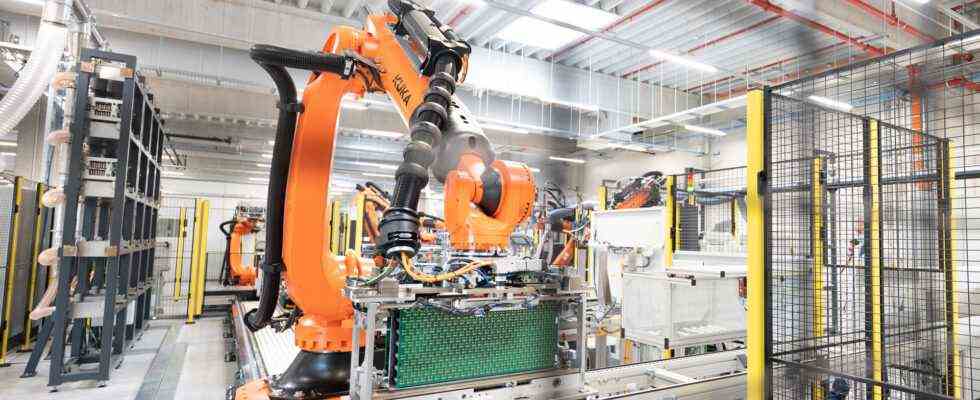Status: 14.12.2021 10:10 a.m.
The number of robots in use has again increased significantly worldwide – also in Germany. The Federal Republic of Germany is one of the most highly automated economies in the world.
Germany’s industry is the most automated in a European comparison: in no other country in the EU are so many robots used during a work process as in this country. The number of industrial robots per 10,000 employees rose again last year to a record 371 units, according to the International Federation of Robotics (IFR). The IFR, founded in 1987, sees itself as an international association of the robotics industry and robotics research institutes and is at the same time the international umbrella organization of all national robotics associations.
Germany is also at the forefront internationally. Germany ranks fourth in the world behind South Korea, Singapore and Japan. In addition to Germany, another EU country is represented in the leading positions with Sweden in fifth place.
The number of robots is increasing worldwide
“The robot density is an important metric to understand the differences in the level of automation in different economies,” explained IFR President Milton Guerry. The number of industrial robots in factories around the world climbed to a record level of around three million units last year, as the IFR announced at the end of October.
Worldwide, the average robot density has almost doubled in the past five years, from 66 units in 2015 to 126 units per 10,000 employees. Sectors such as the automotive industry in particular rely on robots and are among the biggest drivers of increasing automation. Nippon, a Japanese manufacturer of industrial robots, is a world leader in the production of automated workers. Overall, the Japanese manufacturers now supply around 45 percent of the global supply.
China is the most dynamic
China is developing most dynamically. The world’s second largest economy made a jump of almost 200 units to 249 in five years from 2015 to 2020 due to the sharp increase in the number of installations. China is now in ninth place worldwide.
Great Britain only has a robot density of 101 units per 10,000 employees. This makes the country the only G7 member below the global average of 126 units and only ranks 24th in the ranking.

